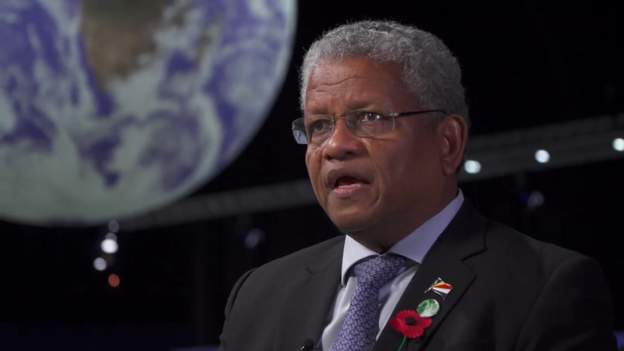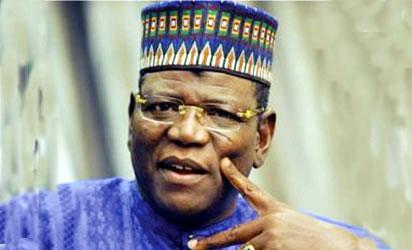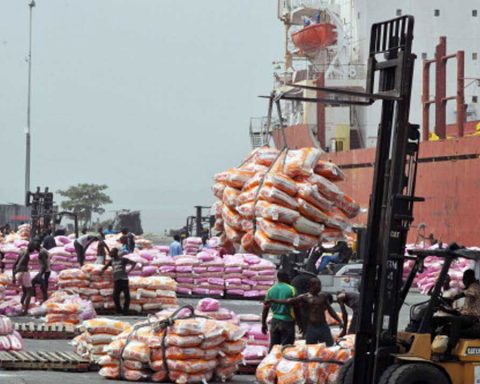…As African Leaders Call For Climate Change Adaptation Finance Assistance From Developed Nations
JUST as leaders of countries across the world gather at Glasgow, Scotland to discuss the way forward on tackling the impact of climate change, a new report released by United Nations Environment Programme (UNEP), has called for more urgent funding commitment towards the implementation of climate change adaptation actions.

The menacing signs of global warming and climate change have led to global commitment in creating policies and programmes of actions geared toward mitigating the impact of the 21st century environmental challenge such as droughts, wildfire, floods and sea-level rise.
Join our WhatsApp ChannelThe report titled ‘Adaptation Gap Report 2021: The Gathering Storm’, gave an update of current actions on climate change adaptation planning, financing and implementation efforts, worldwide and the emerging results at regional and national levels.
The report revealed there is a huge gap between efforts made towards increasing policies and planning and the level of financing and implementation for climate change adaptation which was found to be far behind.
The report noted that the COVID-19 global pandemic has a great impact on climate change adaptation planning and constraints on financing. It revealed that the opportunity of using the pandemic economic packages has become a lost opportunity for prioritising green economic growth.
READ ALSO:Banks to stop accepting old £20, £50 notes Dec 31
Executive Director of UNEP, Inger Andersen called on global leaders to step up efforts towards climate change adaption especially in funding to prevent the impending environmental disruptions.
His words, “As the world looks to step up efforts to cut greenhouse gas emissions – efforts that are still not anywhere strong enough – it must also dramatically up its game to adapt to climate change.
“Even if we were to turn off the tap on greenhouse gas emissions today, the impacts of climate change would be with us for many decades to come. We need to step up in adaptation ambition for funding and implementation to significantly reduce damages and losses from climate change. And we need it now.”
The report also revealed that likely costs of financing climate adaptation for developing countries are estimated at $140 – 300 billion per year by 2030 and $280 – 500 billion per year by 2050.
The report, however, revealed that funding for climate adaptation planning and implementation flowing into developing countries as of 2019 was put at $79.6 billion, indicating that the overall estimated costs for adaptation in developing countries are “five to ten times greater than current public adaptation finance flows,” which shows there is a wide gap from the current adaptation financing.
The report also found that the heightened cost of servicing debt, combined with plummeting government revenues, may affect future government spending on climate change adaptation, particularly in developing countries.
Call For Climate Change Adaptation Finance Assistance To Developing Countries
Meanwhile, African leaders have called on rich developed nations to honor their pledge of mobilizing at least $100 billion annually to assist developing countries in easing climate change adaptation efforts.
The leaders made the call Tuesday at the ongoing COP26 event.
Chairperson of African Union and Congolese President, Felix Tshisekedi speak about the plight of Africa in the face of the global environmental problem.
Tshisekedi highlighted Africa’s effort in the climate adaptation agenda one of which is the Africa Adaptation Acceleration Program (AAAP) launched in collaboration with the Global Centre on Adaptation and African Development Bank (AFDB) to help in deploying adaptation finance for adaption projects in Africa.
He observed that there is an insufficient flow of adaptation finance to Africa.
“The Accelerated Adaptation Programme in Africa is a crucial mechanism that is expected to deploy a significant portion of the billion dollars a year promised to developing countries. While we are discussing adaptation and resilience, we also need to protect Africa’s forests and oceans that serve as natural carbon sinks. It is time for Africa to be compensated for the good of the planet,” AU chairperson stated.
Speaking at the event also, AFDB President, Dr Akinwumi Adesina described the goal and expectation of the Africa Adaptation Acceleration Program saying that it is “a game-changer for Africa to deliver results and impacts on adaptation,” adding that it is expected to reach 40 million farmers and support them to produce 100 million metric tons of food enough to feed 200 million people and reduce hunger by 80 percent.
Akinwumi pointed out that, “Africa loses seven to 15 billion dollars a year due to climate change, which could rise to 50 billion dollars a year by 2040. The continent will need 336 billion dollars to adapt to climate change, and this does not include several billion dollars needed to recover from the COVID-19 pandemic.
One of the African countries that have felt the impact of climate change in recent times, is Madagascar which has experienced four years of drought (no rain), plunging the country into serious food crises.
Victor Ezeja is a passionate journalist with seven years of experience writing on economy, politics and energy. He holds a Master's degree in Mass Communication.









